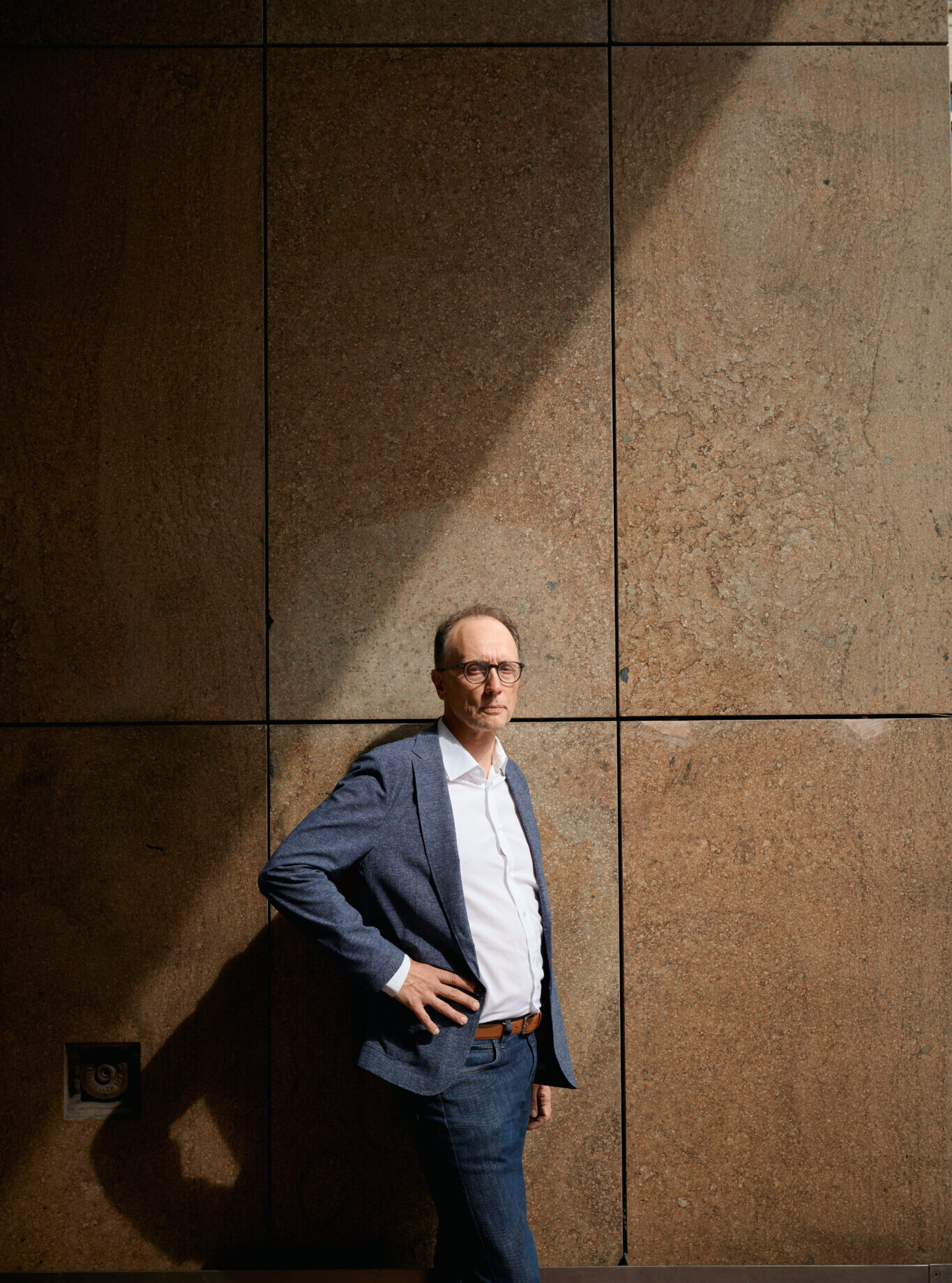How do I develop risk competence?
A few thoughts and suggestions for dealing with major and minor threats.
Recorded by Adrian Schräder
Photography: Florian Kalotay
At the very latest, you will have noticed by reading this magazine: we can do our utmost to protect ourselves from all sides, but are still not immune to certain risks, not even in Switzerland. Matthias Holenstein, CEO of the Risk Dialogue Foundation, tells us how we can deal with this.
“First of all, I would like to say: risks are not a bad thing per se. They are part of life and as such drive development, change and innovation.
- Our perception is distorted: risks are often overestimated or underestimated. Cardiovascular problems, for example, are underestimated. Yet these could be quite easily prevented with regular exercise, sport, a good diet and enough sleep.
- On the other hand, we overestimate the risks that are currently making headlines. Many disaster scenarios have a fairly low likelihood of occurring, but are disproportionately presented in the media. The risk of poor nutrition – for example, the huge packet of crisps while watching TV on the sofa in the evenings – is usually more real and more direct.
- It is perfectly normal to deal with your everyday problems and risks first and not with the threat of a power shortage. This is where the experts come in. However, this should not allow us to simply sit back and relax. We all have something to contribute.
- This leads us to the most important realisation: no matter how great the risk – we are not powerless. We can always do something.
- What does that mean? That we can also actively tackle gigantic, global issues. We can strengthen ourselves against crises – together. This requires two things. First: collaboration between the government, business and civil society. Second: mutual support in our immediate environment – our neighbours, our friends, our residential area – in order to bear such events together. Studies on the bushfires in Australia or the tornadoes in the USA have shown that when danger increases, people develop long-lasting social behavioural patterns.
- We differentiate between three aspects of risk competence: knowledge of risks and corresponding measures, the ability to deal with stress or hazards, and not only taking action but ultimately being willing to take action: I take precautions or I take action if the situation demands.
- By thinking ahead along these lines, we eventually acquire “agility competence”, meaning we trust ourselves and our abilities – but are also ready to accept that things do not always work out. We might not get the job, a relationship might founder, life might not always treat us well. Experience shows: life goes on. This may sound cynical and banal, but those who have experience with crises can deal with them better.
- When establishing a dialogue on a complex social issue such as deep geological repositories, the first step is to expand specific knowledge where it is needed. The responsible institutes must take people’s perspectives and emotions into account. And then it is important to engage in a real dialogue: What information do you wish to acquire? What are your concerns? What aspects of the project could possibly be adapted? By asking these questions, you foster trust.
- A certain rationality is needed when dealing with risks. There are facts, and you need to know these facts. At the same time, it is also legitimate to approach a risk emotionally.
- Dealing with risks also involves weighing them up: You have to consider all the pros and cons, all the risks and opportunities before making a decision. On a personal level, it is easier to avoid risks. You can simply reject certain ideas or activities: bungee-jumping, for example. But that is not possible as a society. We cannot ignore issues such as radioactive waste or climate protection. Well, we could, but the consequences would be devastating.
- In Switzerland, we are generally already very competent in dealing with crises. But we are also quite good at repressing things – for example war, the effects of climate change, or AI. In many cases, we still have the attitude that none of this can affect us. The stable development of recent decades also clouds our view.
- Where we really need to be careful is in preventing the young generation from falling into a kind of depression about the future and concluding that everything is bad. That is why it is important that we talk much more about the challenges of the future in schools, in our free time and in our families. That we look ahead together and train skills we will need in the future.”
Matthias Holenstein is Managing Director of the Risk Dialogue Foundation. The Zürich-based foundation was established 36 years ago with the intention of developing the ability to deal with risks and crises.
Back to Issue 004